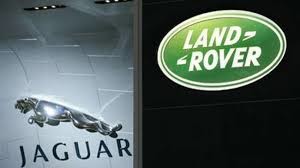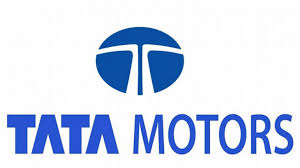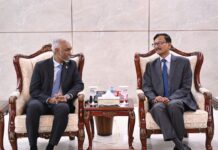 LONDON: Tata Motors-owned Jaguar Land Rover has issued a stark warning against a “bad Brexit deal”, saying it could hit the Britain’s biggest carmaker’s annual profits by over 1.2 billion pounds and may even force an exit from the UK. Britain is set to exit the 28-member European Union in March next year.
LONDON: Tata Motors-owned Jaguar Land Rover has issued a stark warning against a “bad Brexit deal”, saying it could hit the Britain’s biggest carmaker’s annual profits by over 1.2 billion pounds and may even force an exit from the UK. Britain is set to exit the 28-member European Union in March next year.
“A bad Brexit deal would cost Jaguar Land Rover (JLR) more than 1.2 billion pounds profit each year. As a result, we would have to drastically adjust our spending profile,” JLR CEO Ralf Speth warned in a statement yesterday, as British Prime Minister Theresa May prepared for a crucial meeting with her Cabinet at her country retreat of Chequers to hammer out the contours of a new post-Brexit customs arrangement with the European Union (EU) tomorrow.
“I don’t want to threaten anybody, but we have to make transparent the implications of the move. We want to stay in the UK. Jaguar Land Rover’s heart and soul is in the UK,” he said. “We urgently need greater certainty to continue to invest heavily in the UK and safeguard our suppliers, customers and 40,000 British-based employees,” he said.
JLR is the UK’s largest carmaker, which has witnessed a complete turnaround in its fortunes since Tata Motors acquired the traditional British brands from Ford 10 years ago. Speth said that under Indian ownership, the company has spent around 50 billion pounds in the UK in the past five years, with plans for a further 80 billion pounds in the next five. However, all that could be put in “jeopardy” with a bad deal with the EU as Britain prepares to exit the 28-member economic bloc in March next year.
“We, and our partners in the supply chain, face an unpredictable future if the Brexit negotiations do not maintain free and frictionless trade with the EU and unrestricted access to the single market,” said Speth. In comments to ‘The Financial Times’ the JLR CEO even indicated the prospect of a UK exit: “If I’m forced to go out because we don’t have the right deal, then we have to close plants here in the UK and it will be very, very sad.
“This is hypothetical, and I hope it’s an option we never have to go for.” Business Secretary Greg Clark said that the UK government is determined to ensure JLR can remain in Britain.
“JLR is a great British success story. We are determined to make sure that it can continue to prosper and to invest in Britain,” Clark tweeted. More than 40,000 workers are employed by JLR in the UK, with a further 260,000 jobs in the UK supply chain. In 2017, the company sold 621,000 cars, with 80 per cent of them going to 130 countries. One in three cars exported from the UK are Jaguars or Land Rovers, with Europe one of JLR’s largest markets at 20 per cent of all cars being sold there.
“If the UK automotive industry is to remain globally competitive and protect 300,000 jobs in JLR and our supply chain, we must retain tariff and customs-free access to trade and talent with no change to current EU regulations,” Speth said.”Electrification and connectivity offer significant economic and productivity opportunities – get Brexit wrong and British people, businesses and broader society lose the chance to lead in smart mobility,” he added.
Uncertainty over Brexit, as well as the future of diesel cars, has already led the carmaker to announce a series of changes to its UK business. At the beginning of the year, JLR said it would cut production at its plant in Halewood, Merseyside, where it builds three of its Range Rover models.
In April, it said that it would not renew the contracts for 1,000 temporary workers at its operation at Solihull in the West Midlands region of England. But the company had also revealed plans to invest in the Solihull site to allow it to build its new Range Rover models, some of which will be electric-powered, from 2020.
Last month, JLR said it would shift production of its Land Rover Discovery SUV to a new plant in Slovakia, potentially leading to some job losses in the UK. The company’s Brexit intervention comes in the wake of similar statements by other manufacturing giants like BMW and Airbus, warning of a UK exit in the event of a “no-deal” Brexit that demolishes the current free trade regime. PTI







